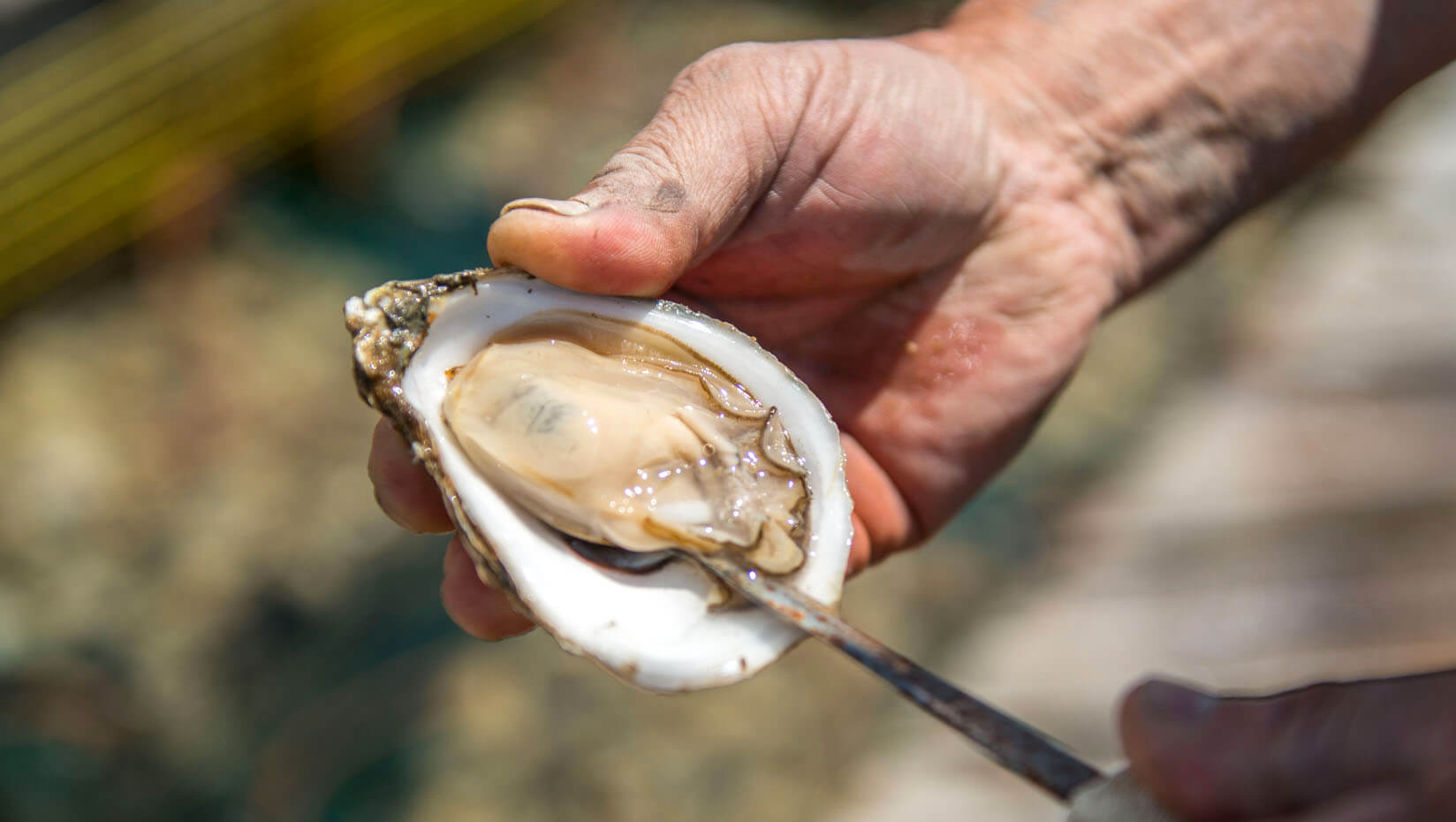
UMaine Aquaculture Research Institute, USDA Agricultural Research Service partner to help salmon and oyster aquaculture succeed in the U.S.
Over the past decade, Maine has seen 2.2% annual growth in aquaculture, which has had an overall economic impact of $140 million annually. Tackling the growing challenges for the sector — from emerging finfish and shellfish diseases to the effects of climate change — is critical.
To address these issues facing the industry in Maine and the nation, an Aquaculture Experiment Station has been established by the University of Maine Aquaculture Research Institute (ARI), in partnership with the U.S. Department of Agriculture Agricultural Research Service (ARS) and Auburn University. This cooperative agreement is a commitment to an ongoing conversation between researchers and the aquaculture industry to increase sustainable production and industry stability.
The cooperative research and development agreement, eligible for renewal every five years, is funded by $950,000 from USDA ARS for the first year, and $750,000 annually thereafter. The Aquaculture Experiment Station will harness the expertise of ARI-affiliated faculty in Orono and at UMaine’s Darling Marine Center in Walpole, and ARS researchers based on the Orono campus and at the National Marine Cold Water Marine Aquaculture Center in Franklin. The agreement also includes shellfish researchers at Auburn University in Alabama.
“An Aquaculture Experiment Station at the state’s research university aligns with our mission as the land, sea and space grant institution in Maine,” said UMaine President Joan Ferrini-Mundy. “Aquaculture is critical for the future of our coastal communities and for the economic recovery of Maine. For more than a decade, UMaine’s nationally and internationally recognized aquaculture researchers and facilities have been dedicated to problem-solving, student experience and workforce development, and advancing this sector to benefit the state’s economy. This partnership builds on those strengths, and creates a synergy among cutting-edge expertise, resources and research.”
“This cooperative agreement is a great example of the effectiveness of public-private partnerships among the University of Maine, USDA and the aquaculture sector,” said Sebastian Belle, executive director of the Maine Aquaculture Association.
“Maine has been a leader in the development of sustainable aquatic farming practices for many years. Those progressive methods are founded on science and innovation. The work that the Aquaculture Research Institute and USDA National Cold Water Aquaculture Center does is critical to the continued growth, sustainability and competitiveness of the Maine aquaculture sector,” said Belle.
“While UMaine has collaborated with USDA for years, this recognized formal partnership will bring national attention to UMaine as a leader in aquaculture research,” said ARI director Deborah Bouchard.
“The committed funding allows for long-term research strategies not often provided through standard funding avenues and allows us to hire researchers, professional staff, and students that strengthen ARI’s research and workforce development programs,” she said.
ARI faculty leads Deborah Bouchard, Damian Brady and Paul Rawson work at a national level in aquatic animal health, shellfish genetics and intelligent farm siting. As researchers in the Aquaculture Experiment Station, the three UMaine experts will expand their work to address USDA ARS priorities, such as alternative feeds for finfish, selective breeding in oysters and “off-flavor” in salmon meat. The experimental station will allow researchers to provide rapid response to industry in a farm and hatchery setting. New research initiatives, focused on genetic improvement of North American Atlantic salmon and the Eastern oyster for aquaculture production, advance the goals of localized selective breeding strategies that improve performance for economically important traits, including growth and disease resistance.
“The research proposed by UMaine and USDA ARS is being driven by input from industry and stakeholders,” said Brian Peterson, research leader and director of the National Cold Water Marine Aquaculture Center in Orono and Franklin. “The new collaboration will allow scientists to focus on emerging diseases, off-flavor, and selective breeding strategies that improve performance of economically important traits such as growth disease resistance.”
Contact: Margaret Nagle, nagle@maine.edu
